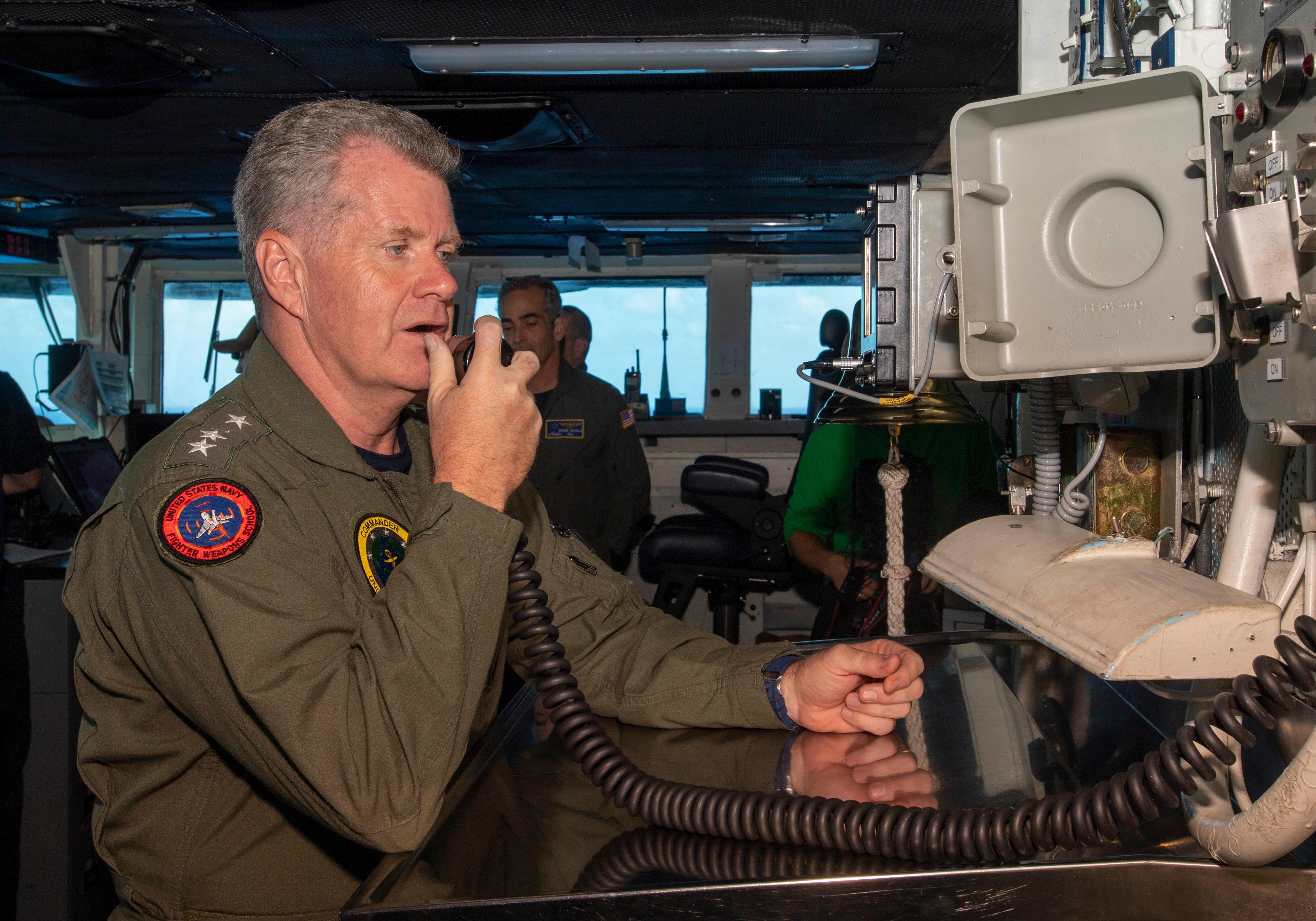
The current state of the civilian mariner sector is a weakness for the United States should a conflict with China break out in the Indo-Pacific, the nominee to lead the combatant command that oversees the region told Congress Thursday.
Adm. Samuel Paparo, who currently leads U.S. Pacific Fleet and was nominated to lead U.S. Indo-Pacific Command, appeared before the Senate Armed Services Committee for his confirmation hearing. During the testimony, Sen. Mark Kelly (D-Ariz.) noted that China has more than 5,500 merchant vessels, while the U.S. has 80 U.S.-flagged merchant ships operating worldwide.
“I believe that the current size and scope of the U.S. merchant fleet is a vulnerability,” Paparo said when asked about the numbers and China’s potential advantage in a conflict. “I believe that we have a force that’s sized for efficiency, but has not been examined from the standpoint of effectiveness under fire.”
Paparo said the merchant marine fleet capacity does affect how the military plans for operations and conflict. U.S. mariners have a long history of supporting American overseas military operations at least as far back as the Spanish-American War, according to a piece in Proceedings.
“It is a limitation for how forward we could put combat capability and sustain combat capability that was in maritime terrain,” he told the panel.
If confirmed, Paparo said he would work with U.S. Transportation Command to find gaps across the maritime enterprise.
Kelly, a graduate of the U.S. Merchant Marine Academy, asked Paparo whether putting the same level of attention on the maritime enterprise as Congress has given critical minerals and semiconductor manufacturing would help national security. Paparo agreed it would.
Earlier this week, Kelly and 18 other lawmakers in the House and Senate penned a letter to President Joe Biden calling on him to create an “interagency maritime policy coordinator” to organize policy across the defense, commercial and civilian space, USNI News reported.
In addition to focusing on the maritime enterprise, Paparo cited the Pentagon’s push to quickly build existing unmanned systems and proliferate them throughout the fleet as one way the U.S. could deal with some of what Kelly described as vulnerabilities.
“I think there are a number of initiatives, such as the Department of Defense’s Replicator initiative that seeks to gain scale with innovative practices and by closing on design and invoking small business and increasing the defense industrial base,” Paparo said. “I think another key point is to understand the opacity of the financial community and the extent to which investments in the [People’s Republic of China] – through their civil-military fusion – directly could confer to weapons building that could affect and could harm Americans on the battlefield.”
Deputy Defense Secretary Kath Hicks unveiled the Replicator effort in August and Paparo has pushed an idea known as “hellscape,” which would use lethal drones to thwart a potential Chinese invasion of Taiwan.
Asked whether a successful invasion of Taiwan would end China’s objectives, Paparo said China is building a force for power projection beyond Taiwan, pointing to the Senkakus – an island chain in the East China Sea that China and Taiwan both claim, but Japan administers – and the South China Sea.
The PACFLEET commander endorsed Taiwan taking an asymmetric approach to defending itself and deterring China, and specifically called out the the “porcupine” strategy written by Adm. Lee Hsi-min, the former chief of staff of the Republic of China Armed Forces.
“Actions that Taiwan takes to strengthen its own defenses have a three-to-one leverage against aggression,” Paparo said. “This is military doctrine on assault rations. And accordingly, to the extent that Taiwan can make itself a porcupine with sea denial capabilities, with the ability to defeat an invader at sea, undersea, in the air, to the invasion beaches, has three-to-one leverage in the investment in its ability to defend itself and ensure that the tension in the straits are resolved peacefully and not by coercion.”
If confirmed, Paparo would replace U.S. Indo-Pacific Command chief Adm. John Aquilino, who has led the combatant command since April 2021.





